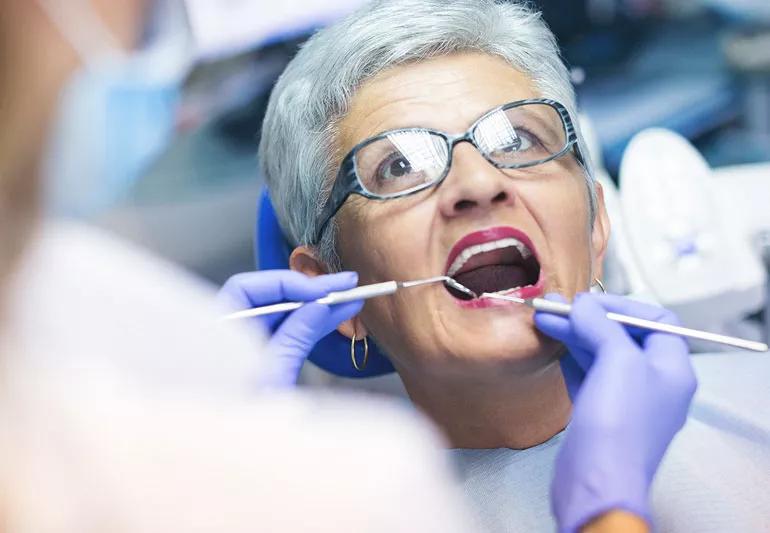The short answer from a cardiologist

Image content: This image is available to view online.
View image online (https://assets.clevelandclinic.org/transform/389fe439-d820-49e4-a0ca-164bd80e8b52/hrtDentistMeds-619655674-770x553_jpg)
Elderly woman getting examined at dentist's office
Q: If I have heart valve disease, do I need to take antibiotics before going to the dentist to prevent an infection?
Advertisement
Cleveland Clinic is a non-profit academic medical center. Advertising on our site helps support our mission. We do not endorse non-Cleveland Clinic products or services. Policy
A: It used to be recommended that people with most types of congenital heart disease receive a dose of antibiotics before having a dental procedure. In the medical world, that’s called antibiotic prophylaxis. In this case, its purpose is to prevent at-risk people from getting infective endocarditis, a bacterial infection of the heart that can lead to heart failure or kidney damage.
The thinking was that people with damaged heart valves were more susceptible to IE, and that bacteria could get into the bloodstream through the gums during an invasive dental procedure.
But in 2007, the American Heart Association issued new guidelines that narrowed the pool of heart patients recommended to take preventive antibiotics before dental procedures.
IE is pretty uncommon, and there aren’t many good studies on it. The research that does exist, though, suggests that the risks of taking antibiotics (such as unpleasant side effects and the threat of antibiotic resistance from overprescribing) outweigh the possible benefits for most people.
It’s more likely that poor oral hygiene is behind many IE infections, rather than dental procedures. After all, we risk releasing germs into the bloodstream through the gums on a daily basis when we brush our teeth and floss. What’s perhaps most important for most people is good regular dental hygiene.
Advertisement
Preventive antibiotics are still recommended before a dental procedure for people most at-risk for IE, though, including patients who:
They may also be appropriate for people with other reasons for increased risk. Your cardiologist can help you understand your risk and whether you might benefit from preventive antibiotics.
— Cardiologist Brian Griffin, MD
Advertisement

Sign up for our Health Essentials emails for expert guidance on nutrition, fitness, sleep, skin care and more.
Learn more about our editorial process.
Advertisement
When baby teeth get damaged, these procedures can relieve pain and save space for adult teeth
You can correct dental issues no matter your age
Benefits typically include bi-annual screenings and lower payments on procedures like fillings and crowns
Silver fillings are perfectly safe
If you grind your teeth at night, a mouthguard might help relieve jaw discomfort
Age, sex and genetics are just a few factors that can affect your risk of developing coronary artery disease
Eating heart-healthy foods, moving around more and getting quality sleep are a few ways to get started
Healthy choices involving food, exercise and more can help reduce your risk
Prioritize your health by managing stress, strengthening your social connections and getting quality sleep
Bolsters, blankets, pillows and blocks can offer extra support, stability and comfort
Allergies, postnasal drip, asthma or reflux could be to blame for a cough that won’t quit